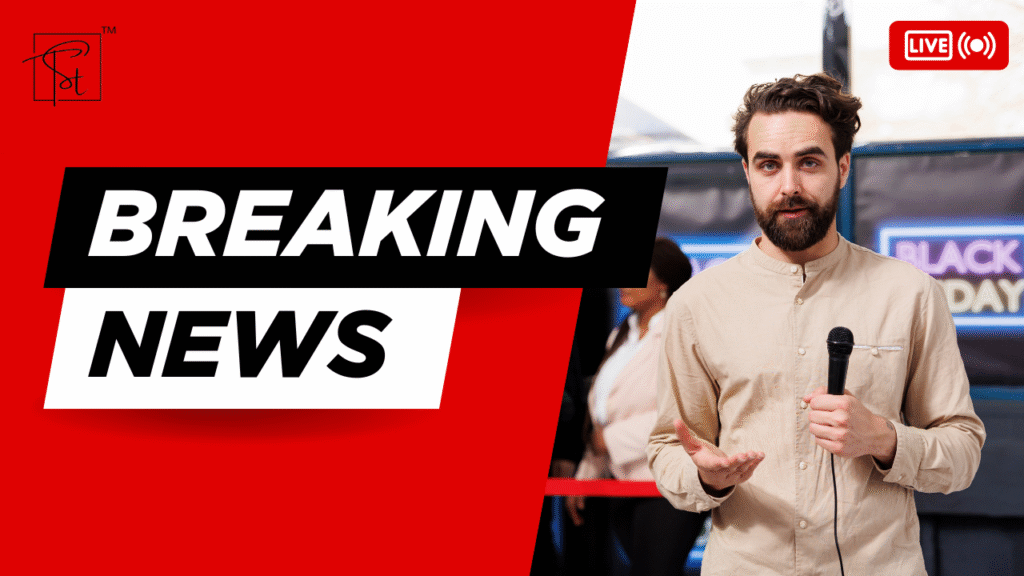Bolivia Coup Attempt Sparks Global Alarm Amid Military Tensions
In a shocking series of events, Bolivia’s political stability was tested on June 26, 2024, when what appeared to be a military coup attempt unfolded in its capital, La Paz. It’s a story that’s still developing, yet it has already sent tremors across South America and beyond. Social media has exploded with photos and videos that have gone viral in under 24 hours, placing Bolivia under the global spotlight.
But what actually happened? And why should the world care? Let’s break it down in plain English and understand what this coup attempt means not just for Bolivia, but for all of us watching from afar.
What Happened in Bolivia Yesterday?
On Wednesday afternoon, several military tanks and troops were seen storming the gates of Bolivia’s presidential palace—known as the Palacio Quemado. Eyewitnesses describe a scene that looked like something out of a movie. Soldiers took control of key government buildings in what officials are calling an “attempt to overthrow the democratically elected government.”
The President of Bolivia, Luis Arce, addressed the nation in a livestreamed video, urging calm and declaring that the military’s actions were unconstitutional. Meanwhile, General Juan José Zúñiga, the head of the Bolivian Army, was identified as one of the key figures behind the attempted power grab.
In short, here’s what went down:
- Military forces stormed government buildings.
- Tanks and armed troops were seen occupying public spaces.
- President Luis Arce denounced the move and refused to step down.
- General Zúñiga claimed he was trying to “restructure democracy,” which many see as code for taking control.
Where Did This Come From? A Quick Look at Bolivia’s Political Climate
To someone casually scrolling through Twitter or TikTok, this might seem random. But Bolivia has been navigating political turbulence for years. Let’s not forget:
- Former President Evo Morales was ousted in 2019 amid election fraud accusations and civil unrest.
- Interim governments followed, each facing growing criticism and protests.
- The 2020 elections brought Luis Arce, a protégé of Morales, back to power through democratic vote.
The tension between Bolivia’s civilian government and parts of the military has been simmering for a while. Yesterday’s coup attempt may seem sudden, but for many Bolivians, it’s the result of years of division, mistrust, and economic frustrations.
How Did Bolivians React?
People poured into the streets not just in fear, but to show support for democracy. In a rare sight, citizens stood outside government buildings waving flags and chanting slogans in support of President Arce. Social media was ablaze with live videos and raw accounts from people documenting everything in real-time.
One young woman in La Paz posted on Instagram, “This is our country. We fought for democracy before and we’ll do it again.” Her post went viral within hours.
Global Reaction to Bolivia’s Coup Attempt
The world didn’t stay silent. Within hours:
- U.S. Secretary of State Antony Blinken urged the protection of Bolivia’s democratic institutions.
- The United Nations condemned any unconstitutional attempt to seize power.
- Neighboring countries like Brazil, Chile, and Argentina expressed “deep concern” and called for the military to respect elected leaders.
The international response was swift because no country operates in a vacuum anymore. In today’s connected world, threats to democracy cause global ripples.
Why This Matters to the World—and to You
The Bolivian coup attempt isn’t just about one country. It’s about a larger theme that’s becoming too familiar lately: a growing global tension between military power and democratic institutions.
We’ve seen it in places like Myanmar, Sudan, and now, Bolivia. There’s a troubling trend of coups sucking the air out of fragile democracies. And while some might think this is a localized issue, history shows us that political instability has a way of spreading—like dominoes falling.
Is Bolivia’s Democracy Safe?
As of now, things seem to be stabilizing. Reports confirm that President Arce is safe, and some troops have withdrawn from public buildings. But that doesn’t mean the danger is over. What happened yesterday, even if short-lived, exposed deep cracks in Bolivia’s system.
It also left the country—and the world—asking some big questions:
- Who influenced General Zúñiga’s decision to act?
- Could more factions in the military follow suit?
- How do citizens recover trust in a system that so quickly teetered on collapse?
Coup Attempts in the Age of Social Media
This incident also highlighted something new: the role of digital platforms in real-time political change. Could this coup attempt have reached the same global audience twenty years ago?
Unlikely. But in 2024, with everyone acting as citizen journalists—armed with only smartphones and wi-fi—the world watched Bolivia’s drama unfold live, minute by minute. And in many ways, this instant documentation helped stifle the coup attempt before it fully escalated. The court of public opinion is faster (and arguably sharper) than ever before.
Comparisons to Other Recent Coups
This isn’t an isolated event. In the past few years, we’ve seen sudden shifts of power in other nations where democracy seemed fragile:
- Myanmar (2021): A full military takeover led to widespread protests and violence.
- Niger (2023): Coup forces ousted leaders, raising fears in West Africa.
- Russia’s internal Wagner uprising (2023): Though stopped quickly, it sent a global warning signal about military loyalty.
Bolivia just joined this list—but with a slightly different twist. Its citizens and democratic leadership pushed back fast. Could this nine-hour drama be a symbol of hope in resisting authoritarian takeovers?
What Happens Next?
The Bolivian government has reportedly detained key military figures involved in the attempted coup. Investigations are ongoing, and we can expect a tense few weeks ahead.
What to watch for?
- Possible reshuffling or firings within the military structure.
- Statements from international allies offering support.
- Mass mobilizations from civil society defending democracy, similar to those seen during other attempted coups in global history.
How Can the World Support Bolivia?
Countries, organizations, and individuals can play pivotal roles. Here’s how:
- Diplomatic Support: Backing Bolivia’s elected institutions sends the right message.
- Media Coverage: Keeping the world watching protects citizens and leaders from violence.
- Sanctions or repercussions: For any faction trying to benefit from unconstitutional power grabs.
Final Thoughts: A Moment That Could Shape the Region
We’re living in a time where democracy feels more fragile than ever. What happened yesterday in Bolivia wasn’t just a scare—it was a wake-up call. And while democracy prevailed—for now—this event could have long-standing consequences for South America’s political direction.
So the next time someone asks you, “What’s going on in Bolivia?”—you’ll know this wasn’t just another headline. It was a real-world reminder that democracy is something we can’t take for granted.
Let’s keep watching, supporting, and—most importantly—learning.
Want More Updates?
Follow our blog and sign up for alerts. We’ll keep tracking how Bolivia moves forward, sharing verified updates with clarity and context you can trust.
Stay informed. Stay engaged. Democracy depends on it.


